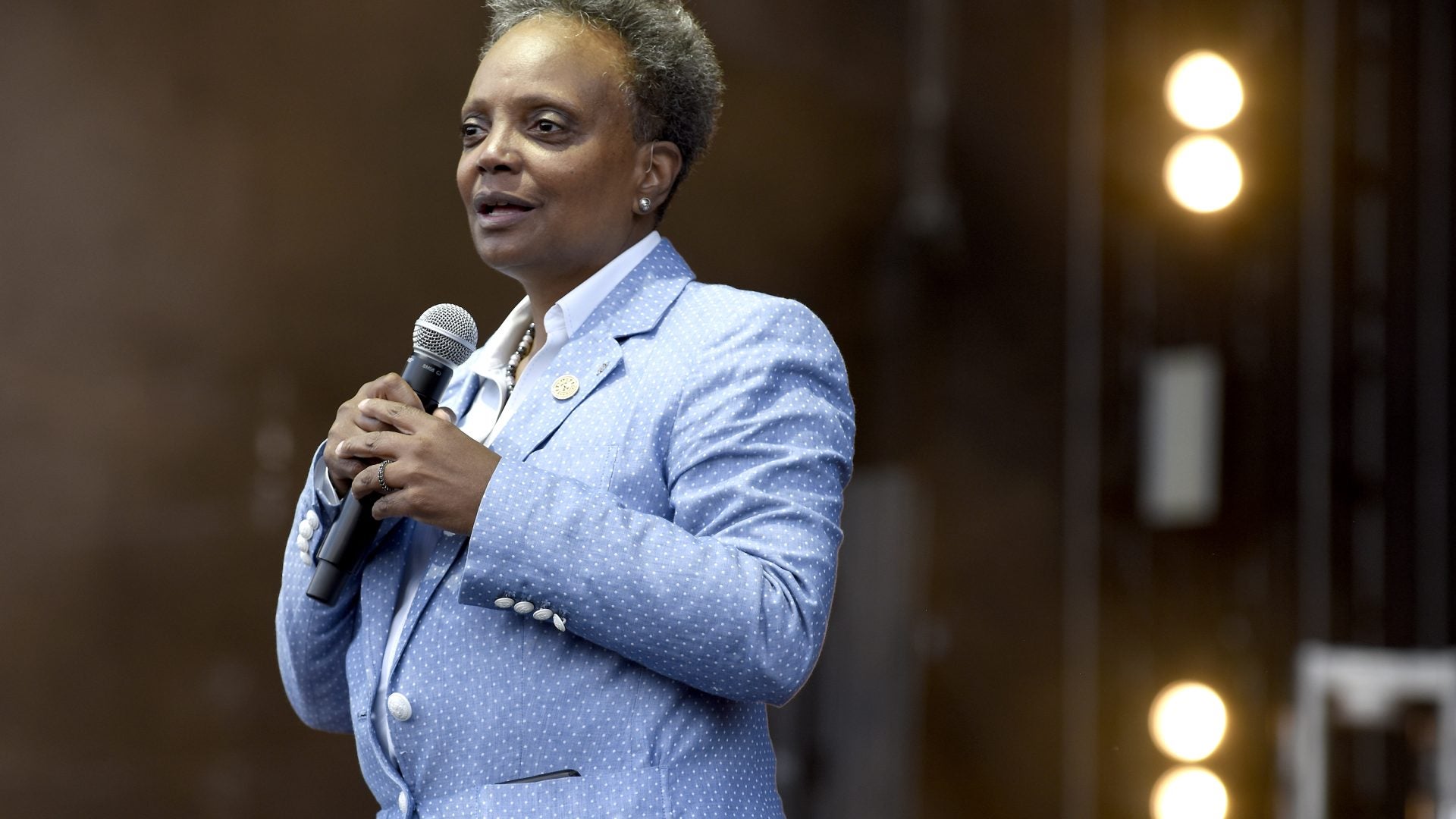
Lori Lightfoot, the first Black woman and first openly gay person to lead the city of Chicago as mayor, lost her bid for a second term Tuesday night after four years in office.
According to CNN, the April runoff will be between Paul Vallas, a longtime superintendent of public schools who ran on a tough-on-crime platform, and Brandon Johnson, a Cook County commissioner supported by progressives and the Chicago Teachers Union.
With ninety-eight percent of the votes counted, Vallas had 34% and Johnson had 20%. Lightfoot trailed with only 17 percent of the vote, CBS News reports.
Lightfoot’s loss marks the time in more than 30 years that an incumbent Chicago mayor was defeated after one term, CNN reports.
A former prosecutor and chair of the city police review board, Lightfoot faced opposition from several other candidates. They attacked her for a rise in crime that started during the COVID-19 pandemic and for having what they say is an unnecessarily combative leadership style.
Speaking to supporters Tuesday night, the history-making politician called being Chicago’s mayor “the honor of a lifetime.”
“We fought the right fights, and we put this city on a better path,” Lightfoot said. “We were fierce competitors in these last few months, but I will be rooting and praying for our next mayor to deliver for the people of the city for years to come,” she added, according to WBBM.
Lightfoot and some of her supporters believe some of the criticism of her leadership as motivated by racism, sexism and anti-gay sentiment. “No other mayor has been asked to change this city within four years,” said city Treasurer Melissa Conyears-Ervin, who is Black, and noted that White mayors like Emanuel and Richard Daley served multiple terms. “When we get in the game, the rules change,” she said, according to CBS News.
Throughout her campaign, Lightfoot emphasized her track record of supporting workers and putting money into communities by raising the minimum wage to $15 per hour. She also noted how the city had to navigate unprecedented challenges, such as the pandemic and its effects on the economy and public safety, as well as anti-police demonstrations.
Lightfoot’s loss is unusual for mayors in large cities, who have tended to win re-election relatively easily. But it’s also a sign of the times reflecting challenges in U.S. cities following the COVID-19 pandemic, a recession and spikes in violent crime in many places.





